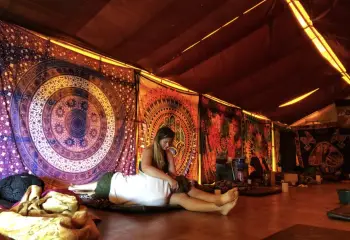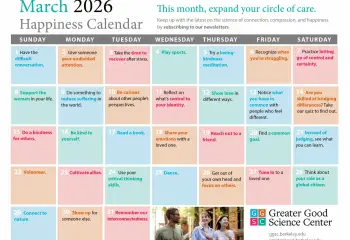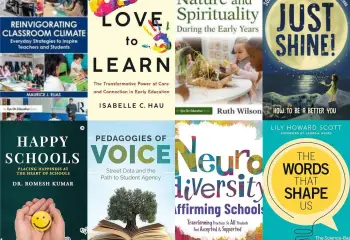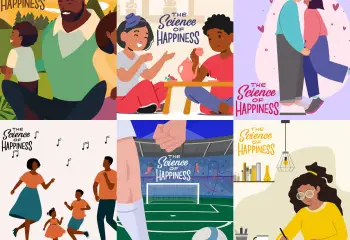Our happiness is shaped by genetics, life experience, social forces, and culture, as well as individual choices. While your control over most of those domains is limited, there are steps you can take on a personal level to increase your chances of experiencing happiness in life. And all of us can act to change culture and address inequalities that affect happiness on a collective level.
Here are some of the keys to happiness identified by researchers, along with some specific, science-based activities for strengthening skills of happiness, in ourselves and in society.
Build relationships: Perhaps the dominant finding from happiness research is that social connections are fundamental. Try these practices to strengthen trust, mutual support, and affection in your relationships:
Practice different kinds of appreciation. Life can be hard, because negative events and emotions are inevitable. But we can bolster our resilience by shining the light of our attention on the good things.
- Savoring Walk: Take a walk and pay attention to positive feelings and experiences, to deepen and extend them.
- Gratitude: Count your blessings on a regular basis, whether by writing a letter, keeping a journal, or just saying thanks.
- Time Capsule: Create a collection of positive experiences to surprise your future self.
- Mental Subtraction of Positive Events: Visualize what your life would be like without the good things you have.
Pay attention. Studies find that people who practice mindfulness—the moment-by-moment awareness of our thoughts, feelings, and external circumstances—score higher on measures of happiness, and lower on measures of anxiety and distress.
Practice kindness. Researchers believe generosity feels good because it highlights and incentivizes positive social interactions and strengthens the social bonds that support happiness. Here are some ways to be kind.
- Do nice things for other people: Neuroscience research shows that when we do nice things for others, our brains light up in areas associated with pleasure and reward.
- Compassion Meditation: This meditation fosters feelings of compassion and concern for others by training you to notice suffering and strive to alleviate it.
- Spend money on other people: Similarly, research by Elizabeth Dunn and her colleagues finds that people report greater happiness when they spend money on others than when they spend it on themselves.
- Learn more ways to practice kindness at Greater Good in Action.
Move your body—and then rest. Exercise isn’t just good for our bodies; it’s good for our happiness. So is sleep!
- Get physical: Studies show that regular physical activity increases happiness and self-esteem, reduces anxiety and stress, and can even lift symptoms of depression. “Exercise may very well be the most effective instant happiness booster of all activities,” writes Sonja Lyubomirsky in The How of Happiness.
- Spend time in nature: People who are more connected to nature tend to experience more positive emotions, vitality, and life satisfaction.
- Then get rest: Research has consistently linked lower sleep to lower happiness. What’s more, a study of more than 900 women, led by psychologist Daniel Kahneman, found that getting just one more hour of sleep each night might have a greater effect on happiness than getting a $60,000 raise.
Address inequalities. More egalitarian countries consistently rank among the happiest in the world—and there is evidence that economic, racial, and gender inequality hurts the happiness of disadvantaged groups. Fortunately, there are steps we can take to address these inequalities.
- Remove barriers to voting. Inequality depresses the vote of low-income people, which reduces their political power. You can help address that situation by supporting organizations dedicated to voter mobilization and reform.
- Work against racial prejudice and xenophobia. There are many research-tested ways to address racial inequality, on individual and collective levels.
- Work for gender and LGBTQ+ equality. There are also evidence-based ways to reduce inequality between men and women, and to expand and protect the human rights of gay, lesbian, bisexual, transgender, and queer people.
- Support efforts to address poverty. “Economic wealth matters across cultures,” says researcher William Tov. “In every culture, wealthier people generally are happier than less wealthy people.” Fortunately, volunteering and political activism—or more specifically, the sense of meaning and purpose those involve—seem to be good for both mental and physical health. If we can help our society address poverty, says the evidence, then everyone benefits.
Of course, happiness-boosting activities don’t work equally well for everyone. Understanding yourself better can help you choose practices and exercises that align with your personality, your situation, and your goals.








